How AI Is Transforming The Future Of HR
4.8 out of 5 based on 8554 votesLast updated on 17th Sep 2024 13.9K Views
- Bookmark

HR professionals are leveraging AI to boost decision-making, automate tasks, and elevate the overall employee experience.
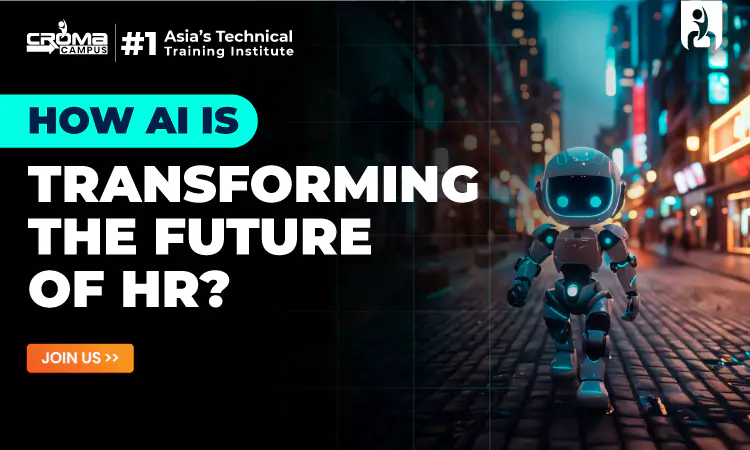
Overview
Artificial Intelligence (AI) is revolutionizing many industries, and Human Resources (HR) is no exception. From hiring and recruitment to employee engagement, AI has become a powerful tool that’s helping HR departments work smarter and more efficiently. HR professionals are now using AI to improve decision-making, automate tasks, and enhance the overall employee experience. For anyone looking to understand these developments and apply them in their career, taking an HR Online Training Course is a great first step to gaining in-depth knowledge about how AI is changing HR.
AI and Recruitment
One of the areas where AI has had a profound impact is recruitment. Traditionally, HR professionals would spend hours, sometimes even days, reviewing resumes, conducting interviews, and scheduling meetings. This was a time-consuming process prone to biases and errors. However, artificial intelligence in human resource management has changed the game.
If you are in the HR field, it’s time to embrace AI and all it has to offer. Understanding the use of AI in HR and its benefits of AI in HR can help you stay ahead of the curve and make a positive impact on your organization. Enroll in an HR Online Training Course today to deepen your knowledge and skills in this exciting area.
If you are interested in learning how to leverage AI in recruitment, consider enrolling in an HR Management Course Online that covers AI's role in talent acquisition and recruitment processes.
AI in Employee Engagement and Retention
Employee engagement and retention are two major challenges for HR departments. Unhappy employees often lead to high turnover rates, which can be costly for companies. Luckily, AI is offering solutions in this area too.
AI tools can monitor employee engagement by analyzing employee feedback, performance reviews, and even communication patterns. For instance, if an employee has a declining performance score or has expressed dissatisfaction in feedback forms, AI systems can alert HR teams to these issues before they become more serious. This enables HR to take timely actions to retain valuable employees.
When employees feel that their growth and development are being taken seriously, they are more likely to stay with the company. This application of AI is a huge benefit for HR teams trying to keep employees engaged and reduce turnover. AI in HR in this area is becoming more common as companies realize the importance of employee satisfaction.
AI and Performance Management
Another significant area where AI is making waves is performance management. Performance reviews can often be subjective and biased. However, AI in human resource management enables organizations to assess employee performance more fairly and accurately. By analyzing data such as project outcomes, team contributions, and skill development, AI provides HR professionals with a data-driven view of employee performance.
AI also helps in setting performance goals. By using historical performance data, AI tools can create benchmarks for individual employees or teams. These benchmarks are based on real data, making the goal-setting process more realistic and attainable. In addition, AI provides ongoing feedback by analyzing performance metrics in real-time, allowing managers to give constructive feedback to employees throughout the year, rather than just during annual reviews.
By integrating AI into performance management, organizations can foster a culture of continuous feedback and improvement, making it easier for employees to perform better and grow within the company.
Also Read These Posts:
HR Certification Courses For Beginners
HR Generalist Roles And Responsibilities
AI and Training & Development
AI is not just transforming how HR departments manage performance; it’s also playing a big role in employee training and development. Traditionally, training programs have been designed with a one-size-fits-all approach, which doesn’t always meet the needs of every employee. However, with artificial intelligence in human resource management, companies can offer personalized learning experiences.
AI-powered platforms analyze each employee's skills, job role, and career aspirations, recommending training programs that are tailored to their specific needs. For example, if an employee is looking to improve their leadership skills, AI might recommend relevant leadership training courses or development workshops.
The Role of AI in Predictive Analytics
One of the most exciting developments in AI for human resources is its ability to predict future trends using data. AI can analyze large amounts of data to identify patterns, which HR departments can use to forecast potential challenges, like high turnover rates or skill gaps within the workforce. This predictive analytics capability helps HR teams plan more effectively, ensuring they have the right people in the right roles at the right time.
The Benefits of AI in HR
The benefits of AI in HR are numerous. Here are some key advantages:
- Improved Efficiency: AI automates time-consuming tasks, allowing HR professionals to focus on strategic planning and decision-making.
- Data-Driven Decisions: AI provides valuable insights based on data, helping HR teams make more informed decisions.
- Fairness and Reduced Bias: AI helps eliminate human biases in processes like recruitment and performance evaluations, leading to fairer outcomes.
- Personalization: AI allows for more personalized employee experiences, from tailored training programs to customized development plans.
- Cost Savings: By improving efficiency and reducing turnover, AI helps organizations save both time and money.
The benefits of artificial intelligence in human resources make AI an indispensable tool for HR professionals around the world.
Challenges of AI in HR
Despite the numerous benefits, there are challenges to consider when implementing AI in HR. Some of the main challenges include:
- Data Privacy: AI systems rely on large amounts of data, often including sensitive employee information. Companies need to ensure that their AI tools comply with data privacy regulations and keep employee data secure.
- AI Bias: While AI can reduce human bias, it can also introduce its own biases if not properly programmed and monitored. It’s essential to evaluate AI systems to ensure fairness continually.
- Integration Issues: Implementing AI tools requires proper integration with existing HR systems. This can be complex and time-consuming and may require significant resources to get right.
The Future of AI in HR
The application of AI in human resources is expected to grow in the coming years. AI will become even more advanced, providing HR teams with deeper insights and better workforce management tools. From AI for human resources that predicts employee behavior to AI-powered tools that create customized training programs, the future of AI in HR looks promising.
For HR professionals, staying updated on the latest trends in AI is crucial. Taking an HR Management Course Online that covers AI applications can help professionals understand how to integrate AI into their HR practices effectively.
Summing Up
AI is transforming the way HR departments operate, making them more efficient, data-driven, and strategic. From recruitment and employee engagement to performance management and training, artificial intelligence in human resources management is revolutionizing every aspect of HR. As more organizations adopt AI, the role of AI in human resource management will continue to grow, offering new opportunities and challenges for HR professionals.
Subscribe For Free Demo
Free Demo for Corporate & Online Trainings.
.webp)
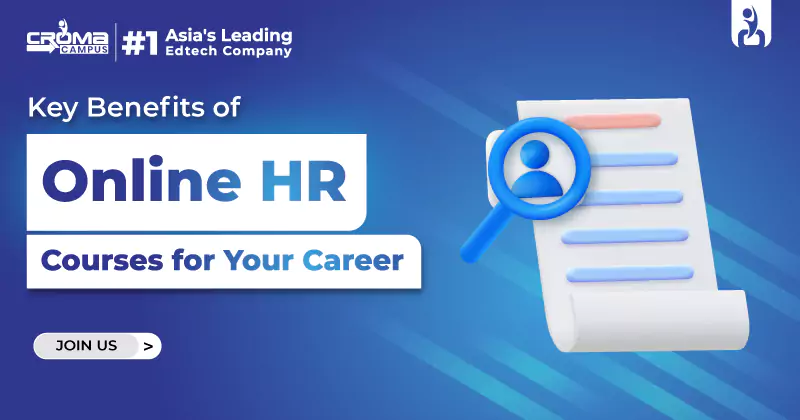
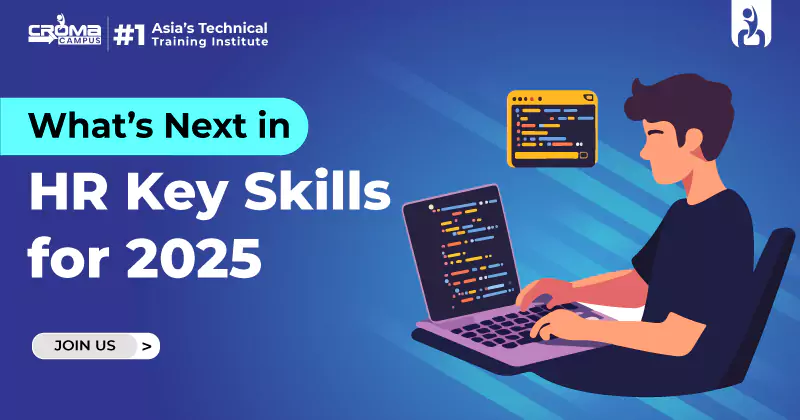
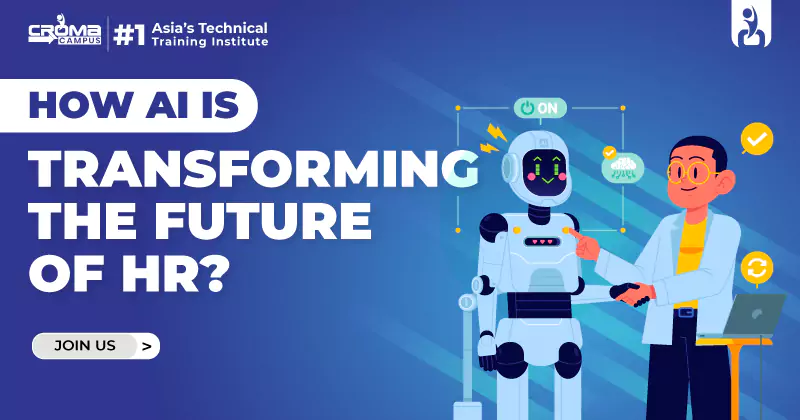
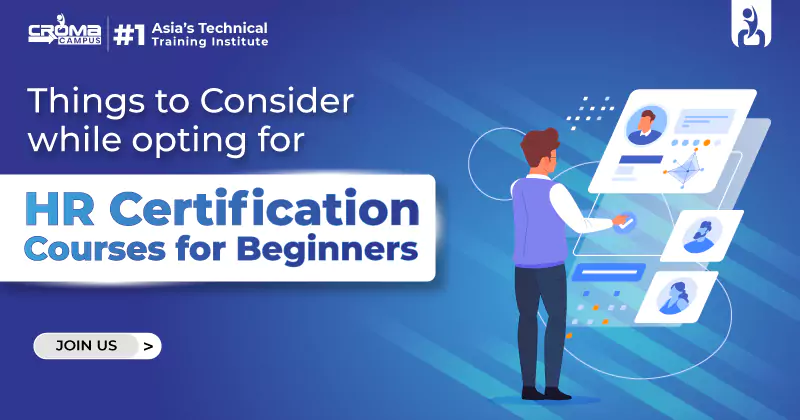
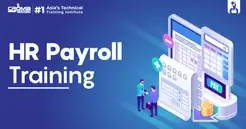




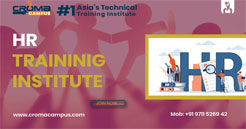
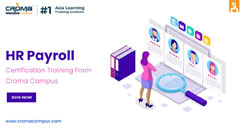













.webp)

.png)















